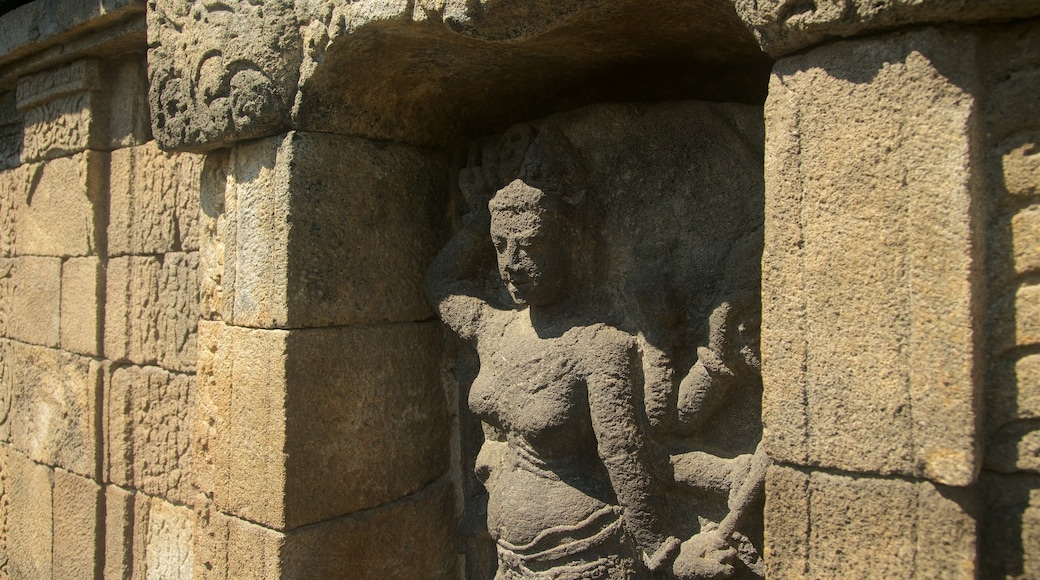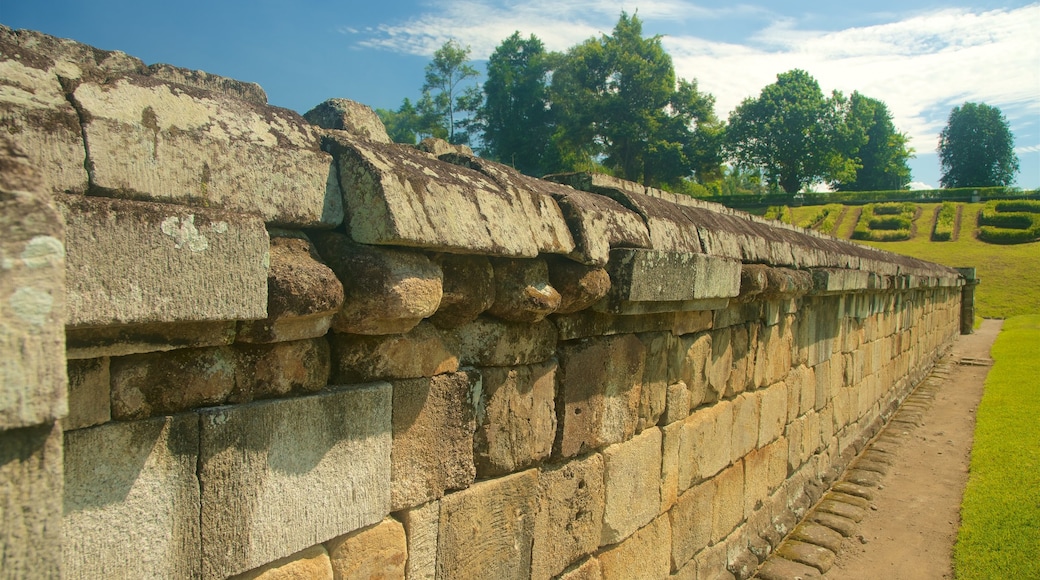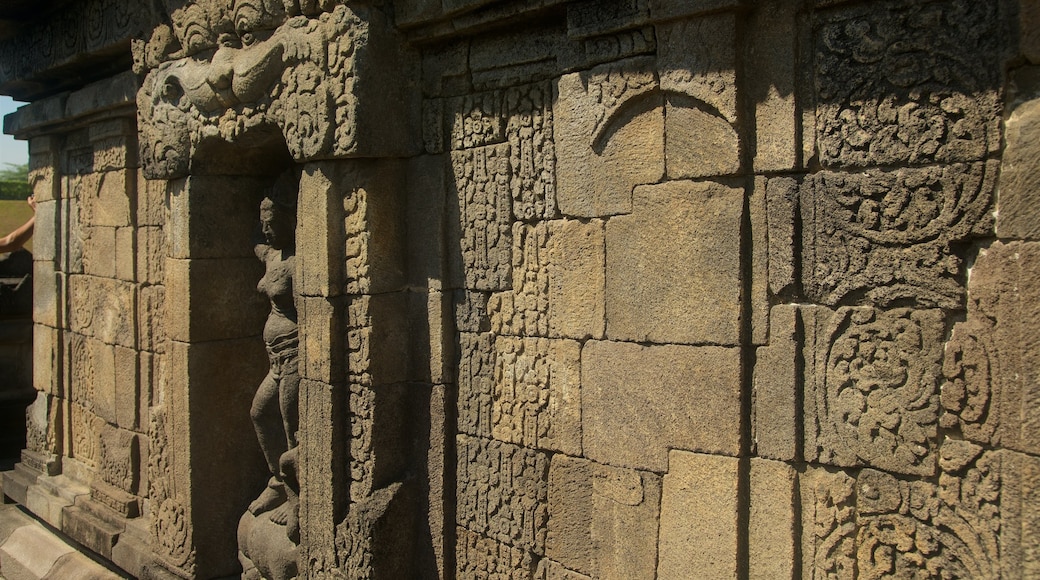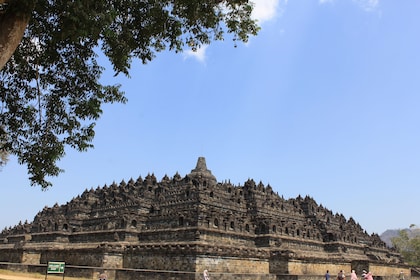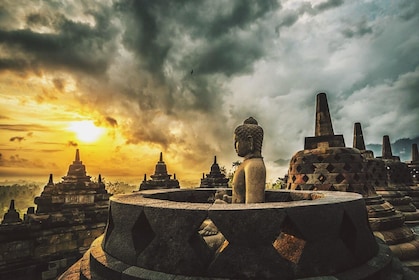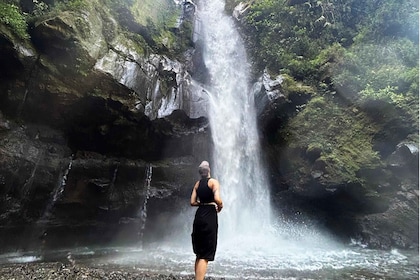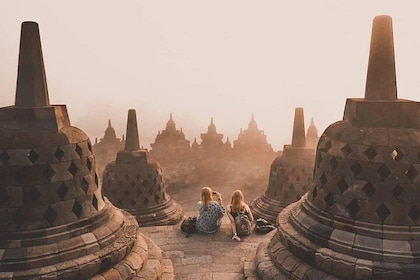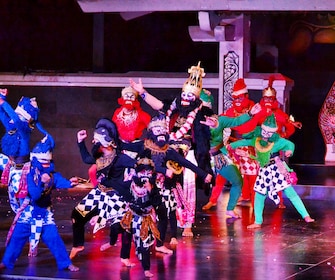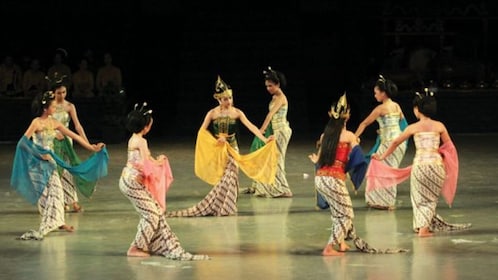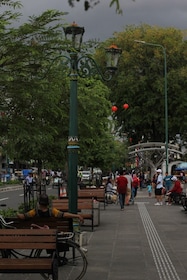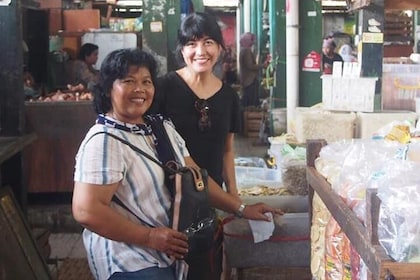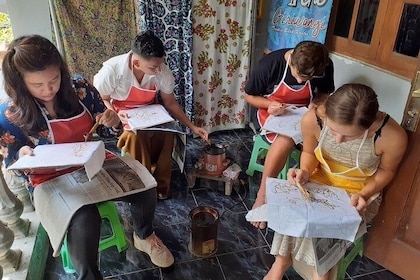The Sambisari Temple is a fascinating set of Hindu ruins dating back to the 9th century. It was excavated in the mid 20th century, after being buried 16 feet (5 meters) underground. Learn about Hindu practices from more than 1,000 years ago with a visit to this sacred structure.
Arrive in the serene field and descend one of the four flights of steps to reach the lower level with excavated temple buildings. The complex comprises one main temple and three smaller structures. See the trimmed hedges that spell out the name of the complex in large letters. Lay down a blanket to enjoy a picnic with a view of the fascinating temple buildings.
Note the intricate carvings of flowers and climbing plants on the outer layer of the walkway. Dragon motifs and squatting Ganas decorate the staircases. Admire the statue of Ganesh on the main temple, which has a pointed roof.
Capture photos of your family sitting on the outer part of this majestic temple, which was hidden from the world for so many years. Inspect the water spout that is supported by a Nāga serpent.
The three smaller temple structures comprise only a stone base and railings, with no body. It is believed the Hindu King Rakai Garung built the temple. A farmer discovered the site in the 1960s when he found a solid object in his field. Over the centuries, it had been buried by the sand and rock from Mount Merapi.
The Sambisari Temple is about 7 miles (11 kilometers) north-east of the Yogyakarta city center. Find it in its namesake hamlet in the Purwomartani village. Try to bring enough small change to pay the low fee to enter the complex. Go to see the intriguing nearby landmarks, such as the Kalasan Temple, the Candi Prambanan and the Ratu Boko.

